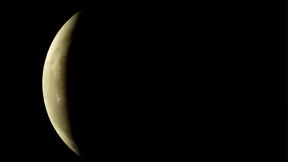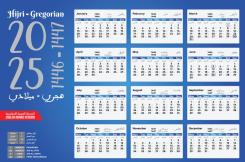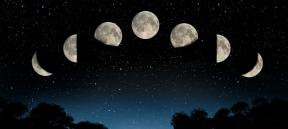
Muslims in America and Canada start their Islamic dates and events based on a criteria adopted by the Islamic Shura Council of North America.
The Islamic Shura Council of North America is a four-member body comprised of the representatives of the four largest Muslim organizations on the continent: the Islamic Society of North America (ISNA) the Islamic Circle of North America, the Ministry of W.D. Mohammad, and the Jamaat Community of Imam Jamil al-Amin.
How the Shura Council makes its decision
The Shura Council's Fiqh position on the issue of moonsighting is that that they will accept any moonsighting from within North America as long as it is not contradicted by undisputed astronomical calculations. In other words, no astronomers differ that the moon can be sighted by a person who has claimed to see it.
What usually happens is if someone claims to have seen the moon, they should call ISNA headquarters in Plainfield, Indiana and a couple of Muslim astronomers talk back to them to authenticate whether they have seen the moon or have mistaken something else for the moon.
Dr. Shaukat, an Islamic astronomer notes that people can mistakenly take planets and clouds as the moon. Sometimes even planets make the crescent which is visible with a telescope or binocular but not the naked eye. People mistake this for moon crescent.
A final decision is made when a conference call by the Islamic Shura Council is made to decide if the moon has been sighted or not. This includes its own four representatives, two Muslim astronomers and a few representatives from the North American Fiqh Council.
The Shura Council's method gets a nod of approval
The Shura council's method of determining the beginning and end of Ramadan was recently supported by Fiqh scholars from all over the world at a November 20, 2000 meeting in Detroit. Scholars from Saudi Arabia, Egypt, Syria, the U.S. and Canada unanimously agreed that the position taken by Shura council on moonsighting is the best one under guidelines of the Quran and Sunnah for the North American context.
Scholars present at this meeting included Yusuf al-Qaradawi (Egypt/Qatar), Wahab al-Zuhaily (Syria), Jamal Badawi (Canada), Adam ash-Sheikh (Sudan), Muzammil Siddiqi (U.S.), and Sharafil Qaddad (Saudi Arabia).
Why there are differences about the beginning and end of Islamic dates
Yet, it is not uncommon to find different Muslim countries beginning and ending of Islamic months on varying days. Shaukat explains that this is because of the method they use to determine the month's beginning and end. There are five main ways Muslims worldwide determine the Islamic dates:
- Some countries go by actual physical sighting of the moon. India, Pakistan, Bangladesh, UK, the United States, Canada and the West Indies uses this method.
- Some countries calculate different things about the position of the moon. Saudi Arabia, for example, calculates when is the new moon is born and then follow these calculations when deciding when an Islamic month begins and ends.
- Countries like Malaysia, Indonesia and Brunei determine Islamic events and dates by the calculation of the position of the moon at sunset in their country. If the moon is two degrees above the horizon and three degrees away from the sun then they consider that the new month has begun.
- In Egypt, if the moon sets five minutes after sunset in their country, then they consider that the moon has been sighted. They do not require physical sighting.
- Some countries follow the decisions of other Muslim countries. Syria, Turkey and Iraq often follow Egypt's decision or Saudi Arabia's. The Gulf countries and some European countries also follow Saudi Arabia's decision.
"The problem is multiplied when people from these countries in North America want to follow their home country and they try to insist authorities like the Shura council to follow the very first country which has announced the beginning of the month."
Keep your eyes peeled, your telescopes focused and your binoculars ready.








Comments
i agree with the rules laid by the shura council and hope people will stop figting over this issue and get together to agree on one thing.
Location
Add new comment